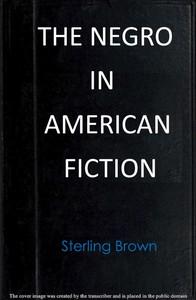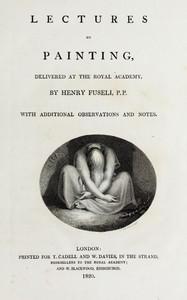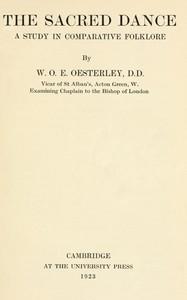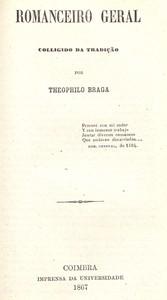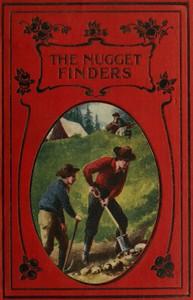|
|
Read this ebook for free! No credit card needed, absolutely nothing to pay.Words: 64982 in 17 pages
This is an ebook sharing website. You can read the uploaded ebooks for free here. No credit cards needed, nothing to pay. If you want to own a digital copy of the ebook, or want to read offline with your favorite ebook-reader, then you can choose to buy and download the ebook.

: The Negro in American fiction by Brown Sterling A Locke Alain Editor - African Americans Intellectual life; African Americans in literature; American fiction African American authors History and criticism; American fiction African influences@FreeBooksSat 07 Oct, 2023 Introduction 1 INTRODUCTION The treatment of the Negro in American fiction, since it parallels his treatment in American life, has naturally been noted for injustice. Like other oppressed and exploited minorities, the Negro has been interpreted in a way to justify his exploiters. I swear their nature is beyond my comprehension. A strange people!--merry 'mid their misery--laughing through their tears, like the sun shining through the rain. Yet what simple philosophers they! They tread life's path as if 'twere strewn with roses devoid of thorns, and make the most of life with natures of sunshine and song. Most American readers would take this to refer to the Negro, but it was spoken of the Irish, in a play dealing with one of the most desperate periods of Ireland's tragic history. The Jew has been treated similarly by his persecutors. The African, and especially the South African native, is now receiving substantially the same treatment as the American Negro. Literature dealing with the peasant and the working-class has, until recently, conformed to a similar pattern. The blind men gathered about the elephant. Each one felt the part of the elephant's anatomy closest to him, the trunk, tusk, eyes, ear, hoof, hide and tail. Then each became an authority on the elephant. The elephant was all trunk, or all hoof or all hide, or all tail. So ran their separate truths. The single truth was that all were blind. This fable, pertinent to our study, might be continued to tell how some of the blind men returned to their kingdoms of the blind where it was advantageous to believe that the elephant was all trunk or tusk. Many authors who are not hostile to the Negro and some who profess friendship still stress a "peculiar endowment" at the expense of the Negro's basic humanity. Some antislavery authors seemed to believe that submissiveness was a mystical African quality, and chose mulattoes for their rebellious heroes, attributing militancy and intelligence to a white heritage. Many contemporary authors exploit the Negro's quaintness, his "racial qualities." Whether they do this for an escape from drab, standardized life or out of genuine artistic interest or, in the case of Negro authors, out of race pride, their work suffers from the narrowness of allegory. It must be added that these authors play into the hands of reactionaries, who, once a difference is established, use it to justify peculiar position and peculiar treatment. Whether the Negro was human was one of the problems that racked the brains of the cultured Old South. The finally begrudged admission that perhaps he was, has remained largely nominal in letters as in life. Complete, complex humanity has been denied to him. He is too often like characters in the medieval allegories: now Loyalty, or Mirth, or Servility, or Quaintness, or Exuberance, or Brutishness, or Lust. Only seldom is he shown as Labor or Persecution, although he was brought here to supply the first, and as payment received the second. Since there is no stereotype without some basis in actuality, it goes without saying that individuals could be found resembling Page's loyal Uncle Billy or Stark Young's William Veal, or Dixon's brutal Gus, or Scarlet Sister Mary or Van Vechten's Lasca, or even Uncle Tom and Florian Slappey. But when, as is frequent, generalizations are drawn from these about a race or a section, the author oversteps his bounds as novelist, and becomes an amateur social scientist whose guesses are valueless, and even dangerous. Fiction, especially on so controversial a subject as the American Negro, is still subjective, and novelists would do well to recognize that they are recording a few characters in a confined social segment, often from a prejudiced point of view. They cannot, like Bacon, take all for their province. Fortunately for American fiction, however, there have been authors, even from the outset, who heard the Negro speak as Shakespeare heard Shylock: He hath disgraced me ... laughed at my losses, mocked at my gains, scorned my nation ... cooled my friends, heated mine enemies; and what's his reason? I am a Jew.... If you prick us, do we not bleed? If you tickle us, do we not laugh? If you poison us, do we not die? and if you wrong us, shall we not revenge? If we are like you in the rest, we will resemble you in that. We shall see in the nineteenth century many writers, from Melville to Cable, who have shown sympathy and comprehension. Nevertheless it is to present-day realists, a large number of them southerners, that one must look for the greatest justice to Negro life and character. They have been less concerned with race than with environment; they have sought to get at social causes rather than to prop a social order. Free books android app tbrJar TBR JAR Read Free books online gutenberg More posts by @FreeBooks
: Lectures on painting delivered at the Royal Academy by Fuseli Henry - Painting@FreeBooksSat 23 Sep, 2023

: The sacred dance by Oesterley W O E William Oscar Emil - Dance Religious aspects History@FreeBooksSat 23 Sep, 2023
|
Terms of Use Stock Market News! © gutenberg.org.in2025 All Rights reserved.

